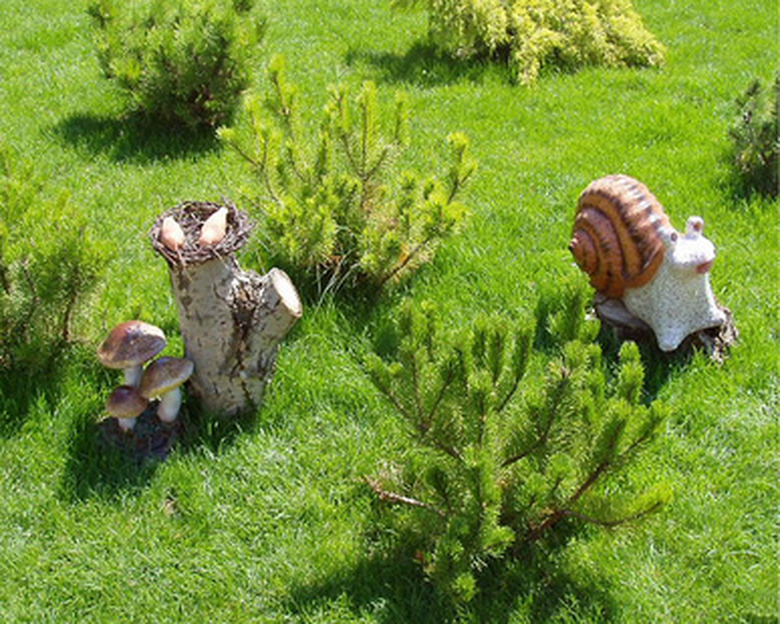Toxicity Of Scotts Turf Builder
The Scotts Miracle-Gro Company produces several products intended for use as turf grass fertilizers and for weed control. Turf Builder, Turf Builder with Halts Crabgrass Preventer and Turf Builder WinterGuard Plus 2 Weed Control are used to promote fast grass growth and weed control. The U.S. Environmental Protection Agency recalled Turf Builder Pre/Post2 in 2008 because of false labeling. These products have come under scrutiny by consumer advocacy groups that rate products for their potential environmental harm.
Rating Agencies
The City of Austin, Texas publishes ratings of commonly used household pesticides and garden products. Their ratings system was developed by Texas A&M University's Pesticide Education Program and the Washington Toxics Coalition. The system lists Scotts Turf Builder Halt and Winterguard as herbicides because their active ingredients kill weeds. Manufacturers are not required to list inert, or inactive, ingredients on the label, because they consider them trade secrets.
- The Scotts Miracle-Gro Company produces several products intended for use as turf grass fertilizers and for weed control.
Active and Inert Ingredients
The Environmental Protection Agency requires manufacturers to list the percentage of the active ingredient that destroy, prevent or repel pests or weeds. Manufacturers typically add inert ingredients to facilitate storage, handling, application or effectiveness of the product. These chemicals can "contribute substantially to the hazards of the product" and "some are more toxic than the active ingredient," according to the Austin report.
Toxicity Ratings
Scotts Turf Builder Halts and WinterGuard Plus are both rated moderately toxic or a moderate skin or eye irritant, with the signal word "caution." The toxicity rating for danger to fish and other aquatic life is also high for both Halts and WinterGuard. While Halts is slightly toxic to birds, bees and pets, WinterGuard is non-toxic to these species. The group does not rate Scotts Turf Builder fertilizer without weed killer as a toxic herbicide. Its high nitrogen levels may burn grass and surrounding ornamental plants, however.
- The Environmental Protection Agency requires manufacturers to list the percentage of the active ingredient that destroy, prevent or repel pests or weeds.
- The toxicity rating for danger to fish and other aquatic life is also high for both Halts and WinterGuard.
Persistence and Mobility
The amount of time a toxic product stays in soil is its "environmental persistence." "Soil mobility" refers to soil binding and the half-life of the chemical in the soil. The Austin study rated persistence in the environment as highly toxic for Halts and moderately toxic for WinterGuard. Although ScottsTurf Builder Halts has low soil mobility, the group rated WinterGuard Plus dangerous for its high soil mobility.
Prevention/Solution
Gardeners can avoid many problems with toxic chemical exposure by practicing organic gardening and observing natural planting habits, according to the Lady Bird Johnson Wildflower Center, which recommends using local native plants and grasses whenever possible. "When we engage in all-out chemical warfare against pests and plant diseases, we also run the risk of harming ourselves and the environment in the process," according to the Johnson Center education group, YardWise.
